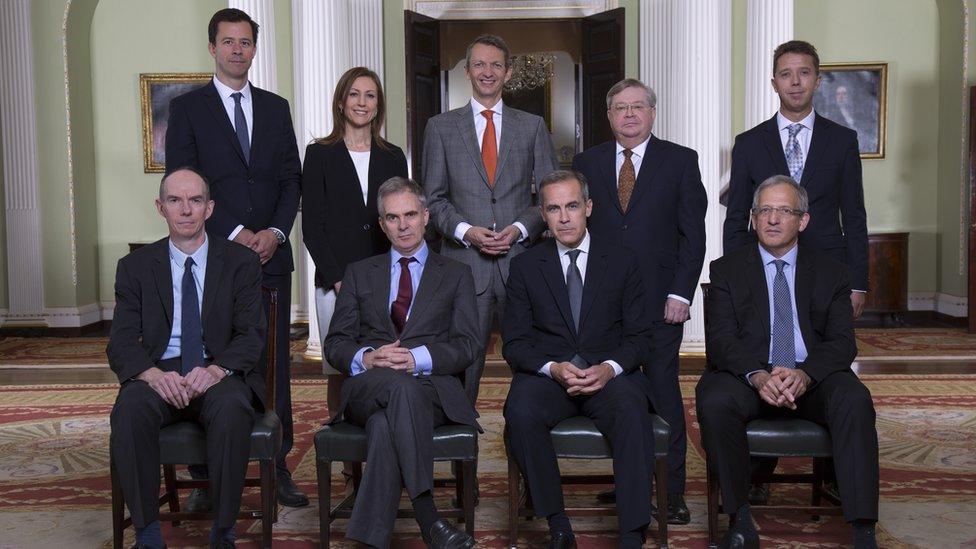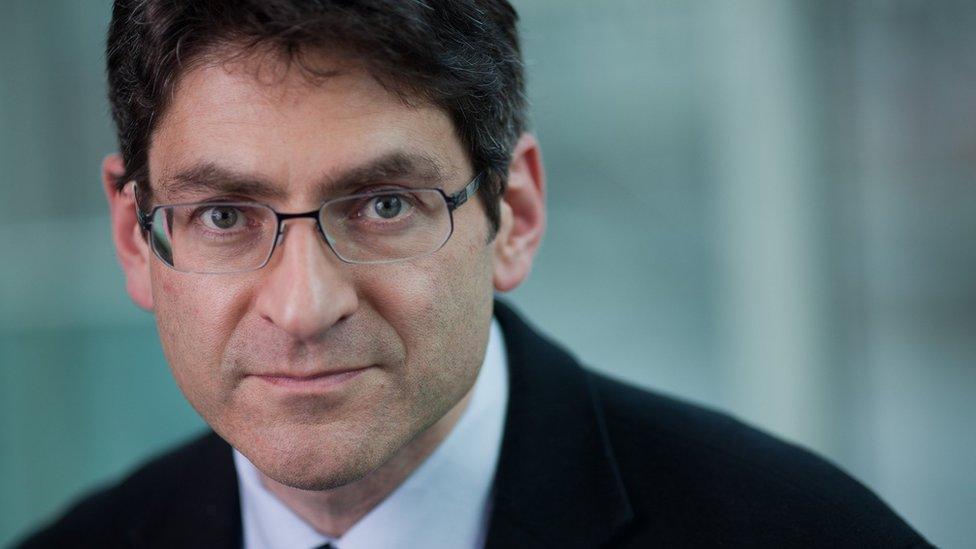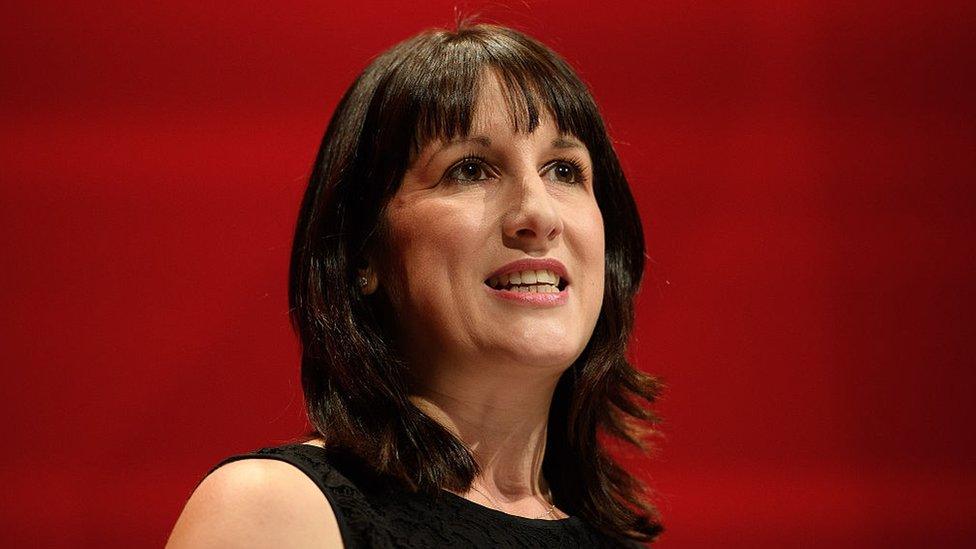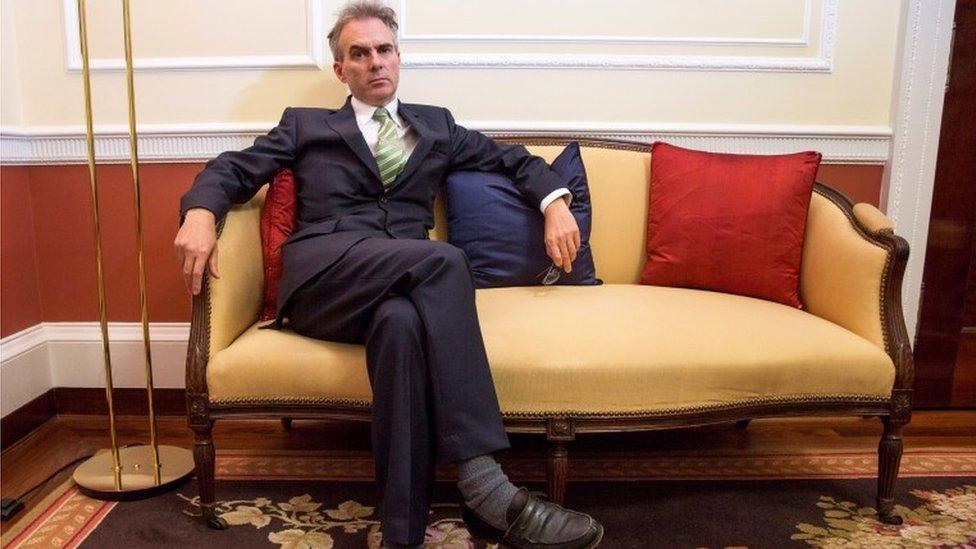Row over 'staggering' failure to pick woman for Bank of England MPC
- Published

Silvana Tenreyo is the only female member of the Monetary Policy Committee
The appointment of another male economist to the Bank of England's rate-setting Monetary Policy Committee has drawn fire from the female chairs of two House of Commons committees.
The Business Committee's Rachel Reeves called it "truly staggering", while Nicky Morgan, from the Treasury Committee, said she was "disappointed".
Prof Jonathan Haskel's appointment means there is one woman on the MPC.
The Treasury said the role had been awarded on merit.
The department insisted it was "committed to diversity and encouraging the broadest range of candidates".
It had "actively contacted" 44 women and 43 men to apply for the role.
Of those, 19 men and eight women applied and four women and one man were shortlisted. It also pointed out that two of the three people on the interview panel were women.
"The final appointment decision was based on merit," it said.
However, Ms Reeves said: "Eight of the nine-strong Monetary Policy Committee are currently men and it is truly staggering that the Treasury has failed to appoint a woman to this role.
"The fact that four women were shortlisted shows that there are plenty of capable and well qualified women, but yet again the top jobs seem to be reserved for men."

Jonathan Haskel joins the MPC on 1 September
Ms Morgan said: "I am disappointed that the gender balance in the Monetary Policy Committee will not be improved through this appointment.
"While I welcome the fact that four women were shortlisted for this role, it is notable that the only shortlisted male candidate has been chosen."
Prof Haskel, who lectures in economics at Imperial College Business School, will replace Ian McCafferty as one of the four externally appointed members of the MPC for three years from 1 September.
Chancellor Philip Hammond said Prof Haskel's "expertise in productivity and innovation will further sharpen the committee's understanding of the British economy".
His appointment was based on recommendations to the chancellor made by an interview panel comprising Clare Lombardelli and Richard Hughes, from the Treasury, and Dame Kate Barker, a former external member of the MPC.
Sarah Smith, professor of economics at Bristol University, said Prof Haskell was "without doubt an excellent appointment, but this leaves only one woman on the committee".
Economics suffered from "serious under-representation of women at all levels", she added.
"The profession is going to have to think seriously about attracting a more diverse range of people - and projecting a broader image - otherwise it is in danger of being seen as a subject that is by men and for men."

Rachel Reeves chairs the Commons Business committee
Diane Coyle, professor of economics at Cambridge University, called on the Bank of England to do more to encourage women to become economists.
She said it was "hard for any interview panel to do anything other than pick the best candidate, and they've appointed a brilliant person".
However, Prof Coyle added that the "bigger problem" was the wider one of too few women economists: "I'd like to see the Bank take a more prominent leadership role in addressing that in schools and universities."
Last November, the Bank's gender pay gap report, external revealed that its male staff England were paid almost a quarter more than female employees.
At the time, governor Mark Carney said he was confident men and women were paid equally for doing the same jobs at the Bank.
"However, the greater proportion of men than women in senior roles creates a gender pay gap," he admitted.
"We are working hard to address this imbalance ... addressing the disparity in gender representation at senior levels will take time, but it will help close the current gender pay gap at the Bank."
- Published31 May 2018

- Published16 May 2018
